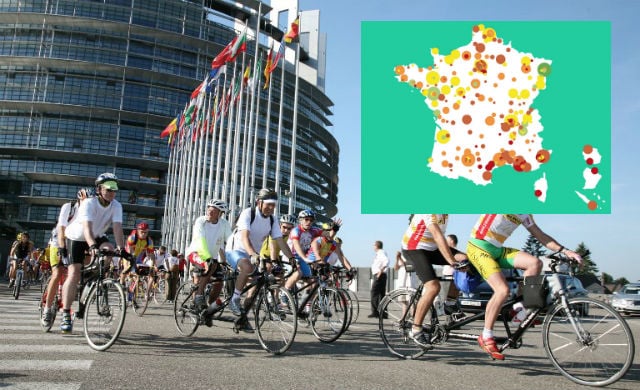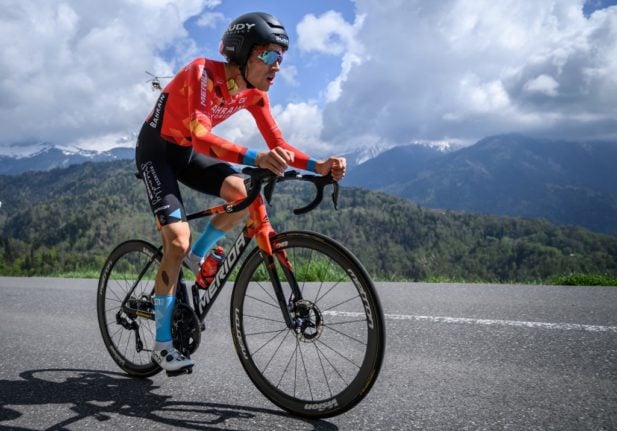The survey was carried out by France's Federation of Bicycle users based on the opinions of over 113,000 cyclists across the country.
And out of France's biggest cities, so those with a population of over 200,000 the undisputed winner was the eastern city of Strasbourg.
The city scored highly for the efforts made by the local authority to improve cycling as well as the presence of two lane cycle paths, ease of getting around on a bike and the ease of being able to hire a bike and find a repair shop if needed.
Nantes, recently judged the best city in the country to work in, took silver medal position and in bronze came Bordeaux in the south west.
In the second category of cities with a population of between 100,000 and 200,000 it was Grenoble in the south east that topped the rankings, followed by Dijon in the east and then Angers in the west.
Then in the category of towns with a population of between 50,000 and 100,000 it was the picturesque La Rochelle on the Atlantic coast that came in first, followed by Chambery in the Alps and then Versailles, just outside Paris.
 (Water is sprayed on participants from above as they ride bicycles during the Bike Parade during Velo-city in Nantes on June 3, 2015.AFP)
(Water is sprayed on participants from above as they ride bicycles during the Bike Parade during Velo-city in Nantes on June 3, 2015.AFP)
As for the list of cities and towns that were ranked the worst for cyclists it appears you should stay away from the Côte d'Azur if you like bike riding.
Marseille, Nice and Toulon were among the cities and towns with the worst score as well as certain suburbs of Paris including Neuilly-sur-Seine, Villejuif and Aubervilliers.
Each city was given a score from A to G and while no town in France achieved an A grade, some 11 percent of the 316 places scored were given a G grade.
Most of he criteria the survey was based on revolved around how easy it was to get around by bike. Respondents were asked to score the cities cycle path network as well as how well the paths were maintained.
Other categories included the quality and places available to lock bikes and the effort made to reduce motorised traffic.
 (Cities are coloured green if they scored well – like Strasbourg in the north east and red if they scored badly, like many towns on the south coast)
(Cities are coloured green if they scored well – like Strasbourg in the north east and red if they scored badly, like many towns on the south coast)
But while authorities in Strasbourg, Grenoble and La Rochelle can feel proud of themselves, the survey made sorry reading for the state of cycling in France in general.
Only 21 out of 316 towns and cities that were scored achieved an above average score. The authors of report were scathing about how bad most French cities are for cycling.
“The conclusion is clear: today, the French cities do not allow you to ride a bike in a simple, comfortable and secure way. The consequence is that children and the elderly are excluded from cycling, which is essential for their independence and health,” said the FUB.
“The French want to cycle but towns need to put in place the right infrastructure whether it's proper two way cycle lanes or places to lock up bikes,” the FUB's president Olivier Schneider told The Local.
“Authorities need to take cycling seriously and see it as a proper form of transport. The aim of our survey was not to just say cycling in France in general is not good, we wanted to show which cities were doing well and which were not.

However the organisation added that Strasbourg and La Rochelle, which scored highly are examples of what can be achieved if town authorities introduce pro-cycling policies.
The FUB demanded the creation of a €200 million fund to help towns invest in cycle paths and networks.
One other recommendation made was to improve the security in train stations to encourage commuters and passengers to use their bikes to get their, safe in the knowledge their bikes will still be there when they return.
France only has 30,000 official areas in train stations to lock bikes, compared to 440,000 in the Netherlands.



 Please whitelist us to continue reading.
Please whitelist us to continue reading.